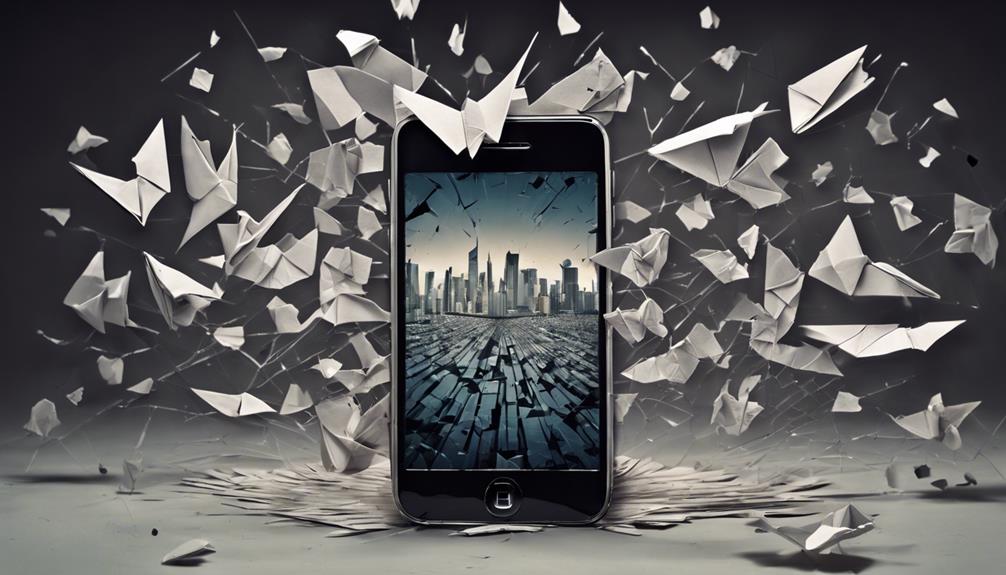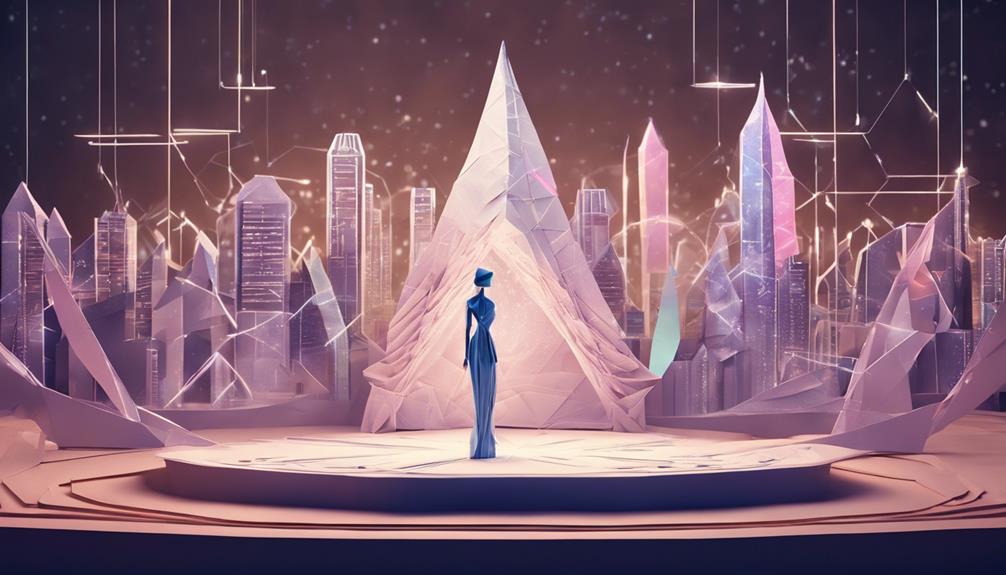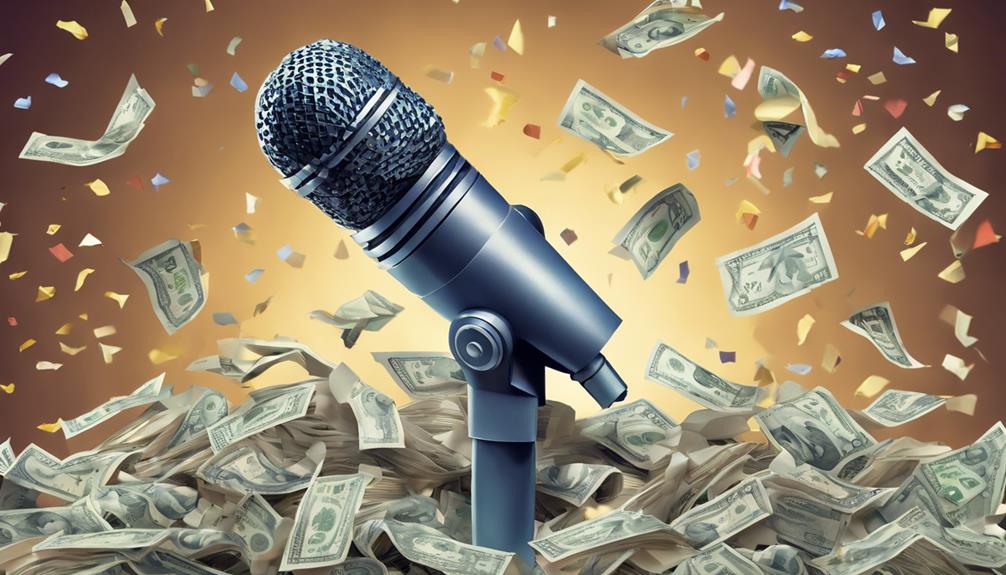You're aware that social media has become a staple in your daily life, but did you know it's linked to skyrocketing rates of depression, anxiety, and loneliness, especially among adolescents? Social media fosters unrealistic comparisons, erodes mental well-being, and manipulates your brain to keep you hooked. Online interactions replace in-person connections, leading to loneliness and disconnection. It's time to recognize the impact of social media on your life. To break the cycle, you must understand how platforms exploit your vulnerabilities and how you can take control of your online habits. Now, it's time to uncover the truth and discover a way out.
Key Takeaways
- Social media's unrealistic comparisons and curated highlight reels contribute to the decline of adolescent mental health and well-being.
- Platforms are engineered to be addictive, exploiting brain vulnerabilities and altering reality perception over time.
- Excessive social media use leads to the erosion of human connections, empathy, and emotional intelligence, causing loneliness and disconnection.
- The constant stream of manipulated content promotes unattainable beauty standards, inadequacy, and self-doubt, with severe psychological consequences.
- Recognizing and differentiating between real and fabricated content is crucial to breaking the toxic cycle and mitigating social media's negative effects.
The Dark Side of Social Media
As you scroll through your social media feeds, you're likely to encounter a barrage of seemingly perfect images and updates, but beneath the curated surface lies a dark reality that's quietly eroding the mental wellbeing of countless adolescents.
You might feel like everyone's having a blast, except for you. Last time you checked, your online presence seemed to pale in comparison to others. You're not alone. The constant stream of flawless selfies and exciting updates can lead to feelings of inadequacy and unhappiness.
Social media has become a hub for unrealistic comparisons, making it difficult for teens to distinguish reality from fantasy. The consequences are alarming: over 50% of teen girls felt persistently sad or hopeless in 2021, and nearly one in three seriously considered suicide.
It's time to acknowledge the dark side of social media and its devastating impact on adolescent mental health. By recognizing the issue, we can start working towards a solution.
Addiction by Design Uncovered
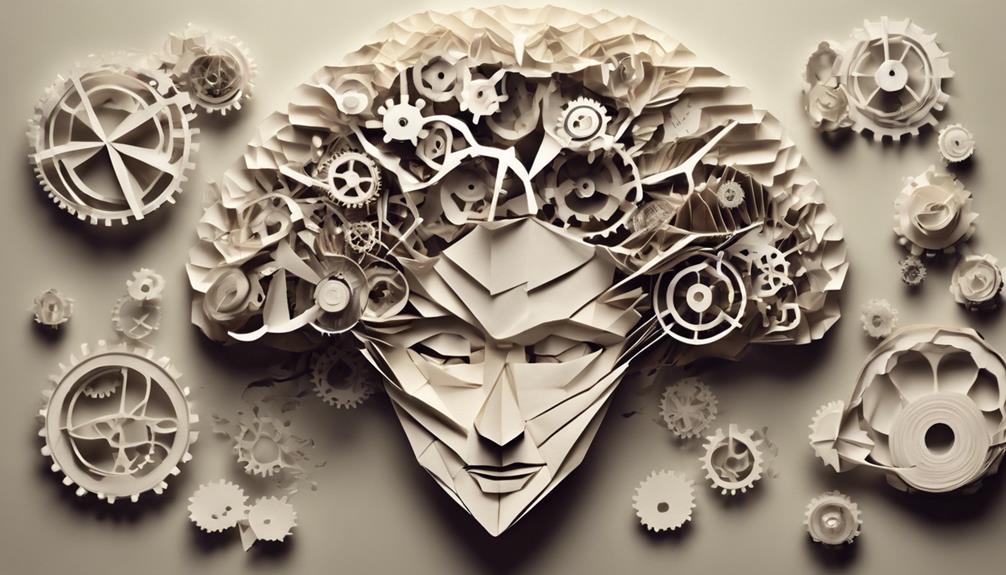
You're likely unaware that social media platforms are deliberately engineered to exploit your brain's vulnerabilities, making you a willing participant in a vicious cycle of addiction.
The alarming truth is that social media addiction is comparable to substance abuse, tapping into the brain's positive reinforcement centers.
As you continue to use these platforms, changes in behavior over time can alter your perception of reality.
The addictive nature of social media can lead to the replacement of in-person interactions with digital ones, making you prioritize your digital presence over in-person relationships.
What's more, the hacking of your brain's reward system by social media can result in a gradual loss of richness in human interaction.
You mightn't realize it, but you're being manipulated into addiction.
It's essential to recognize the tactics used by social media platforms to keep you hooked.
Human Connection in Decline

Since the advent of social media, a disturbing trend has emerged: human connections are rapidly disintegrating, replaced by digital relationships that lack the depth and authenticity of in-person interactions.
You may think you're connected, but the reality is that your relationships are suffering. A report from the US Centers of Disease Control and Prevention highlights the decline in human connection among adolescents due to social media usage. The prevalence of social media has led to a decrease in in-person interactions, affecting the quality of human connections.
Research shows that excessive social media use has contributed to feelings of loneliness and disconnection in society. You're not alone in feeling isolated, even when surrounded by 'friends' online. The rise of social media platforms has shifted the focus from genuine human interactions to digital connections, impacting relationships.
Studies suggest that prolonged use of social media may lead to a decrease in empathy and emotional intelligence, further deteriorating human connection. It's time to take a step back and reassess your online habits to rebuild meaningful connections.
The Cost of Virtual Relationships

Your social media connections may seem endless, but they come at a significant psychological cost, particularly for adolescents. As you scroll through your feeds, you're constantly comparing your life to the curated highlight reels of others. This can lead to feelings of inadequacy and self-doubt, especially when you're bombarded with digitally altered images that promote unattainable beauty standards. The consequences can be severe, contributing to the development of eating disorders and body image issues.
Moreover, the constant stream of information can be overwhelming, causing feelings of loneliness and disconnection. It's ironic that the more connected you're online, the more isolated you may feel in reality. As a result, rates of depression, anxiety, and trauma are on the rise among adolescents.
It's vital to be aware of these risks and take steps to mitigate them. By monitoring your social media activity and educating yourself on the potential negative impacts, you can safeguard your mental health and cultivate more meaningful relationships.
Breaking the Social Media Cycle
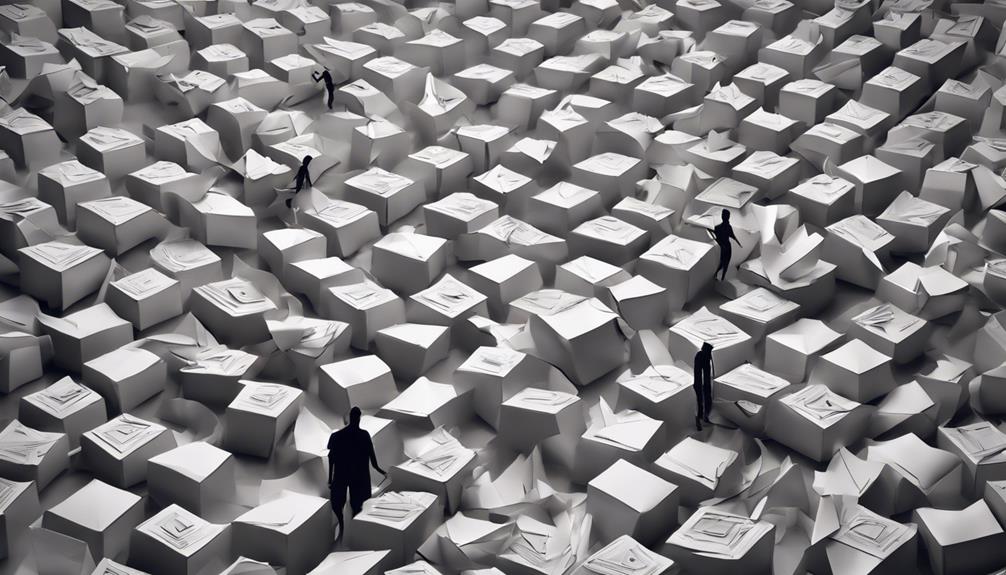
Recognizing the subtle yet pervasive ways social media manipulates your self-perception and relationships is crucial for breaking free from the toxic cycle. Constantly bombarded with digitally altered images makes it challenging to distinguish reality from fantasy. Comparing yourself to unrealistic beauty standards can result in feelings of inadequacy and self-doubt. Acknowledging these manipulations is key to breaking the cycle.
To start, monitor your social media activity and be mindful of how it impacts your mental health. Understand that the perfectly posed selfies and clever captions are often carefully curated to present a false image. Educate yourself on the potential negative effects of social media, and learn to differentiate between real and fabricated content.
Frequently Asked Questions
How Is Social Media Destroying Society?
You're wondering how social media is destroying society, and it's no secret that it's taking a toll on our mental health, relationships, and self-esteem, perpetuating unrealistic expectations and promoting a culture of comparison and competition.
How Has Social Media Been Harmful to Society?
You're probably aware that social media's so-called "highlight reels" can be a wolf in sheep's clothing, subtly poisoning your self-esteem and relationships, but have you considered how it's also silently sabotaging your mental well-being?
How Can We Solve the Negative Impact of Social Media?
You can counteract social media's negative effects by setting boundaries, seeking authentic connections, and promoting realistic representations; by doing so, you'll take control of your online experience and foster a healthier digital environment.
How Is Social Media Killing Us?
You're wondering how social media is killing you, and the truth is, it's affecting your mental health, self-perception, and relationships, slowly but surely, with every like, comment, and share, eroding your sense of self and reality.
What Can I Do to Protect Myself from the Negative Effects of Social Media on Society?
Many people are just now waking up to the alarming truth about social media. To protect yourself from its negative effects on society, set boundaries on your usage, validate the information you encounter, and prioritize real-life connections. Additionally, consider taking regular breaks from social media to maintain your mental and emotional well-being.
Conclusion
You're standing at the edge of a dark forest, surrounded by the eerie glow of screens. The trees, once lush with human connection, now wither away.
You've been lured in by the sweet song of social media, but it's time to break free. Take the first step back into the sunlight. Recognize the addiction, nurture real relationships, and reclaim your life.
The journey won't be easy, but the reward is a life of authenticity, not just a curated highlight reel.

